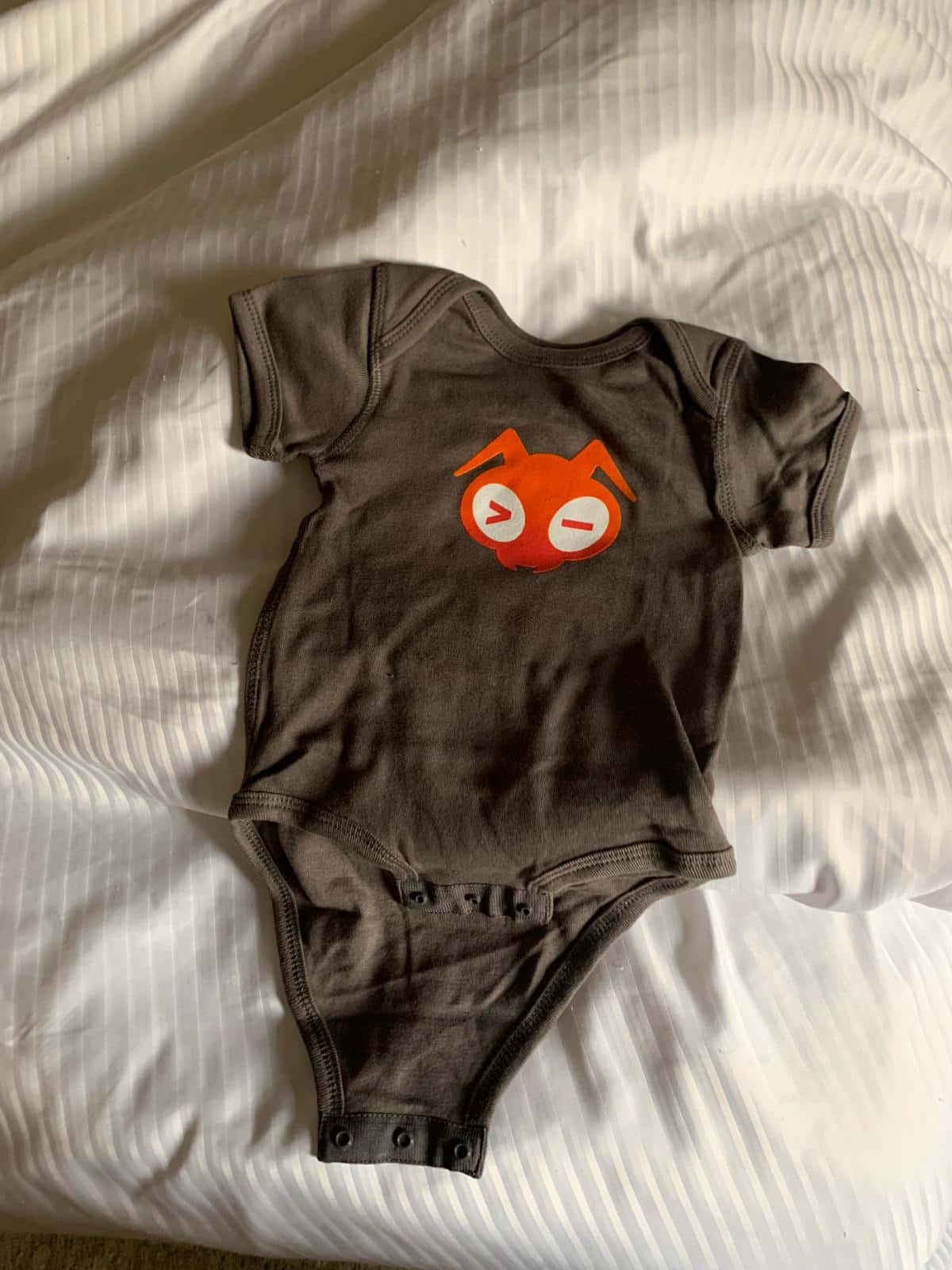
Three founders with seven kids all together, nuff said?
The number of companies that consider themselves ‘family-friendly’ is rising with a global trend that values work-life integration. Giant Swarm is proud to be a family-friendly startup.
But what does this really mean?
Head of People Operations at Giant Swarm, Anna Löw, makes sure we build a structure where a diverse group of people can do their best work sustainably and where the whole is greater than the sum of its parts. As such, she is responsible both for growth through hiring, as well as the internal growth and structure of our company that prioritizes people. With these organizational insights, as well as those from her own motherhood journey, she wrote this blog post to offer a peek into the Swarm structure and why family really is always first.

Obviously, the organization itself isn’t obligated to bring together family and work. It’s just an organization after all. It’s about the employees; each one an individual with a unique definition of how an organization should interpret the family-friendly work model.
In this blog post, I want to share what we’ve done so far to support parents, match it with my own experiences, and show the current challenges. Comments through whichever channels are highly appreciated. Two heads are better than one.
When I reflect on my situation (based in Germany, mother of two, with a partner often on business trips during the week), I can easily say that I do not know any other company where I could work full time.
During playground discussions, it always feels like I’ve won the jackpot, but there’s also a give and take. Aspects that personally support me to do my job are:
Currently, we have 54 employees who have 48 children. Many of us are in the same boat. They know about kids running a fever, kindergartens being on strike, and doctor’s appointments which are not tailored to suit ‘office hours’. And it makes no difference where you are; Giant Swarm is spread over 15+ countries and it’s the same everywhere!
We just have a monthly jour fixe at 5pm. Kids in the hangout are highly welcome. Nobody feels that this is unprofessional
I can decide if I work from home or go to a coworking space. No commuting required, but if I want, I can leave the house. ;-)
I have the chance to pick up my kids in the afternoon and when they are in bed, I can get some tasks done.
We work in GitHub issues, record meetings, etc. I do not have a lack of information if I work flexibly.
“On our first company offsite, we had more children than employees. It was clear from the beginning that family friendliness is important to us.” -- Oliver Thylmann, Co-Founder and CCO
Besides that, Giant Swarms pays a little extra money per kid. This amount for sure does not cover the ‘costs’ of having a child, fostering a certain lifestyle is nothing an organization should do, rather it’s about appreciation and recognition. We also support our team members with parental leave regardless of where they live, whether government programs exist or not. Some of our fathers have actively blocked ‘family time’ in their calendars (others do piano lessons as flexible working hours, so it is not just parents!)
“Everyone knows how to answer an email on a Saturday morning, but it’s about learning to go to the movies on a Tuesday afternoon.” -- Oliver Thylmann, Co-Founder and CCO
Like many other tech companies, we have more men (42) than women (12) in the team. (We are working on our road to diversity, which is not only about gender). We all know that ideally becoming/being a parent should not make any structural difference regarding family friendliness and solutions that have to be found. But in reality (at least my personal one), it does.
I was the first woman in the team who had her maternity leave ‘within Giant Swarm.’ I took 12 months off (fairly typical in Germany) but never lost contact. Again, the remote environment helped me here. Very important, this was something that I wanted. Nobody forced me to stay up to date or even had expectations. I brought the little one to company events and got exactly the same amount of work done that I was willing to do, and with all of the support. No question that I, and also the company, benefitted because ‘being fully back’ was easier than if I would have been an entire year out. In addition to that, I started with fewer hours when I was back to get used to the ‘daily chaos’ again.
This happened because everyone supported my decision. We respect the need of individuals. But this is easier when there are fewer individuals around. But what happens when the spread of what is considered to be ‘family-friendliness’ gets wider? We are just 54 people now. Is there a ‘too wide’? Do we stop being fine at some point? I believe we should not.
With our people-first approach, we have to find solutions that suit our employees. I know the environment we are in makes it easy to step forward here (remote, international, asynchronous work, no fixed job roles, small company, and people who identify highly with their work) but we should not rest.
It’s also worth mentioning that our ideal of ‘family-friendliness’ extends beyond the narrow definitions of a traditional family. Kids, no kids, extended family - it’s about showing up for the people you love so you can be your best self for the work you love.
So, what would you love to see from a company that claims to be family-friendly?
These Stories on Inside
Remote by design, connected by culture – that's the Giant Swarm way.
Embark on a nostalgic journey through the Giant Swarm blog archives, uncovering hidden wisdom in this exploration of past, present, and future blog posts.
Discover the perfect blend of work and play with Giant Swarm's Giant Mansions concept. Remote teamwork, redefined as an adventure!
We empower platform teams to provide internal developer platforms that fuel innovation and fast-paced growth.
GET IN TOUCH
General: hello@giantswarm.io
CERTIFIED SERVICE PROVIDER
No Comments Yet
Let us know what you think